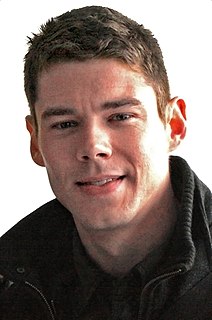A Quote by Shunryu Suzuki
So the most difficult thing is always to keep your beginner's mind. There is no need to have a deep understanding of Zen. Even though you read much Zen literature, you must read each sentence with a fresh mind. You should not say, "I know what Zen is," or "I have attained enlightenment." This is also the real secret of the arts: always be a beginner. Be very very careful about this point. If you start to practice zazen, you will begin to appreciate your beginner's mind. It is the secret of Zen practice.
Quote Topics
About
Also
Always
Appreciate
Appreciate You
Arts
Attained
Begin
Beginner
Careful
Deep
Deep Understanding
Difficult
Difficult Thing
Each
Enlightenment
Even
Fresh
Keep
Know
Literature
Mind
Most
Most Difficult Thing
Much
Must
Need
Point
Practice
Read
Real
Say
Secret
Sentence
Should
Start
The Secret Of
Thing
Though
Understanding
Very
Will
Your
Zen
Related Quotes
The practice of Zen mind is beginner's mind. The innocence of the first inquiry—what am I?—is needed throughout Zen practice. The mind of the beginner is empty, free of the habits of the expert, ready to accept, to doubt, and open to all the possibilities. It is the kind of mind which can see things as they are, which step by step and in a flash can realize the original nature of everything.
Zen purposes to discipline the mind itself, to make it its own master, through an insight into its proper nature. This getting into the real nature of one's own mind or soul is the fundamental object of Zen Buddhism. Zen, therefore, is more than meditation and Dhyana in its ordinary sense. The discipline of Zen consists in opening the mental eye in order to look into the very reason of existence.
Zen is really extraordinarily simple as long as one doesn't try to be cute about it or beat around the bush! Zen is simply the sensation and the clear understanding ... that there is behind the multiplicity of events and creatures in this universe simply one energy -- and it appears as you, and everything is it. The practice of Zen is to understand that one energy so as to "feel it in your bones.
In the beginner's mind there is no thought, "I have attained something." All self-centered thoughts limit our vast mind. When we have no thought of achievement, no thought of self, we are true beginners. Then we can really learn something. The beginner's mind is the mind of compassion. When our mind is compassionate, it is boundless. Dogen-zenji, the founder of our school, always emphasized how important it is to resume our boundless original mind. Then we are always true to ourselves, in sympathy with all beings, and can actually practice.
If you are thinking, you can't understand Zen. Anything that can be written in a book, anything that can be said - all this is thinking . . . but if you read with a mind that has cut off all thinking, then Zen books, sutras and Bibles are all the truth. So is the barking of a dog or the crowing of a rooster. All things are teaching you at every moment, and these sounds are even better teaching than Zen books.
In Japan we have the phrase, "Shoshin," which means "beginner's mind." Our "original mind" includes everything within itself. It is always rich and sufficient within itself. This does not mean a closed mind, but actually an empty mind and a ready mind. If your mind is empty, it is always ready for anything. It is open to everything. In the beginner's mind there are many possibilities; in the expert's mind there are few.































